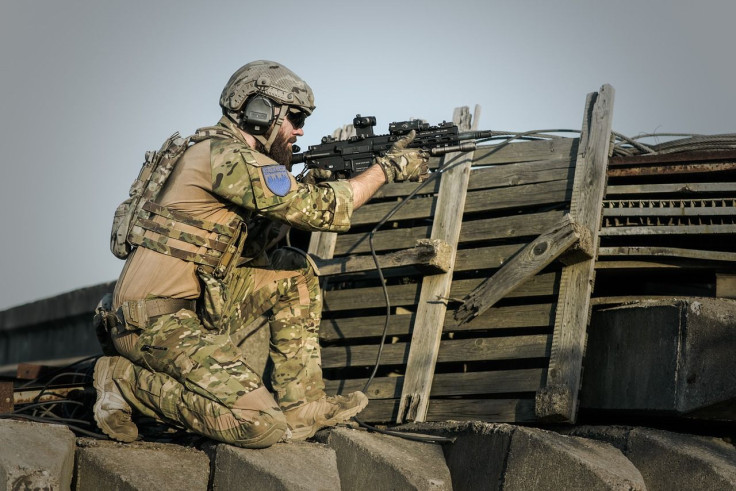US Army Officials 'Open' To Renaming Bases Named After Confederate Leaders

KEY POINTS
- Secretary of Defense Mark Esper and Army Secretary Ryan McCarthy said they were open to the idea of renaming the bases after a "bipartisan conversation"
- There are 10 Army bases in the U.S. named after Confederate leaders in Virginia, Alabama, Louisiana, Texas, North Carolina, and Georgia
- The U.S. Marine Corps. said installations flying a Confederate flag would take it down and remove any depictions of the flag found in the base and on vehicles
U.S. Army officials said they were open to changing the names of bases and forts across the country named after Confederate generals and leaders.
Army Col. Sunset Belinsky said the change of heart came about during a conversation on Monday with Secretary of Defense Mark Esper and Army Secretary Ryan McCarthy. The pair told Belinsky renaming is possible, but it would first require “bipartisan conversation,” along with consultation from the White House, Congress, and state and local officials.
The 10 bases in the U.S. named after Confederate leaders are:
- Fort AP Hill in Bowling Green, Virginia
- Fort Lee in Prince George County, Virginia
- Fort Pickett in Blackstone, Virginia
- Fort Bragg in North Carolina
- Fort Gordon in Augusta, Georgia
- Fort Benning in Columbus, Georgia
- Fort Rucker in Dale County, Alabama
- Camp Beauregard in Pineville, Louisiana
- Fort Polk in Vernon Parish, Louisiana
- Fort Hood in Killeen Texas
The U.S. Army echoed Esper and McCarthy, but said in a statement that “each Army installation is named for a soldier who holds a significant place in our military history.”
“Accordingly, the historic names represent individuals, not causes or ideologies.”
The U.S. Marine Corps. followed the Army’s statement, saying Marine installations in the U.S. would take down the Confederate flag if it was being flown. Depictions of the Confederate flag will also be removed from offices, storage spaces, and military vehicles emblazoned with it.
“The Confederate battle flag has all too often been co-opted by violent extremist and racist groups whose divisive beliefs have no place in our Corps,” the Marine Corps. said in a statement. “Our history as a nation, and events like the violence in Charlottesville in 2017, highlight the divisiveness the use of the Confederate battle flag has had on our society.”
Col. Belinsky’s statement is the latest about-face in regards to Confederate symbols across the U.S. in the wake of George Floyd's death and ongoing Black Lives Matter protests. Several states, including Kentucky and Alabama, have already taken down or announced plans to remove controversial memorials and statues dedicated to Confederate leaders.
Arguably the most notable was in Virginia, where Gov. Ralph Northam and Richmond Mayor Levar Stoney announced plans to remove the five Confederate statues lining Monument Avenue over the summer.
© Copyright IBTimes 2025. All rights reserved.





















